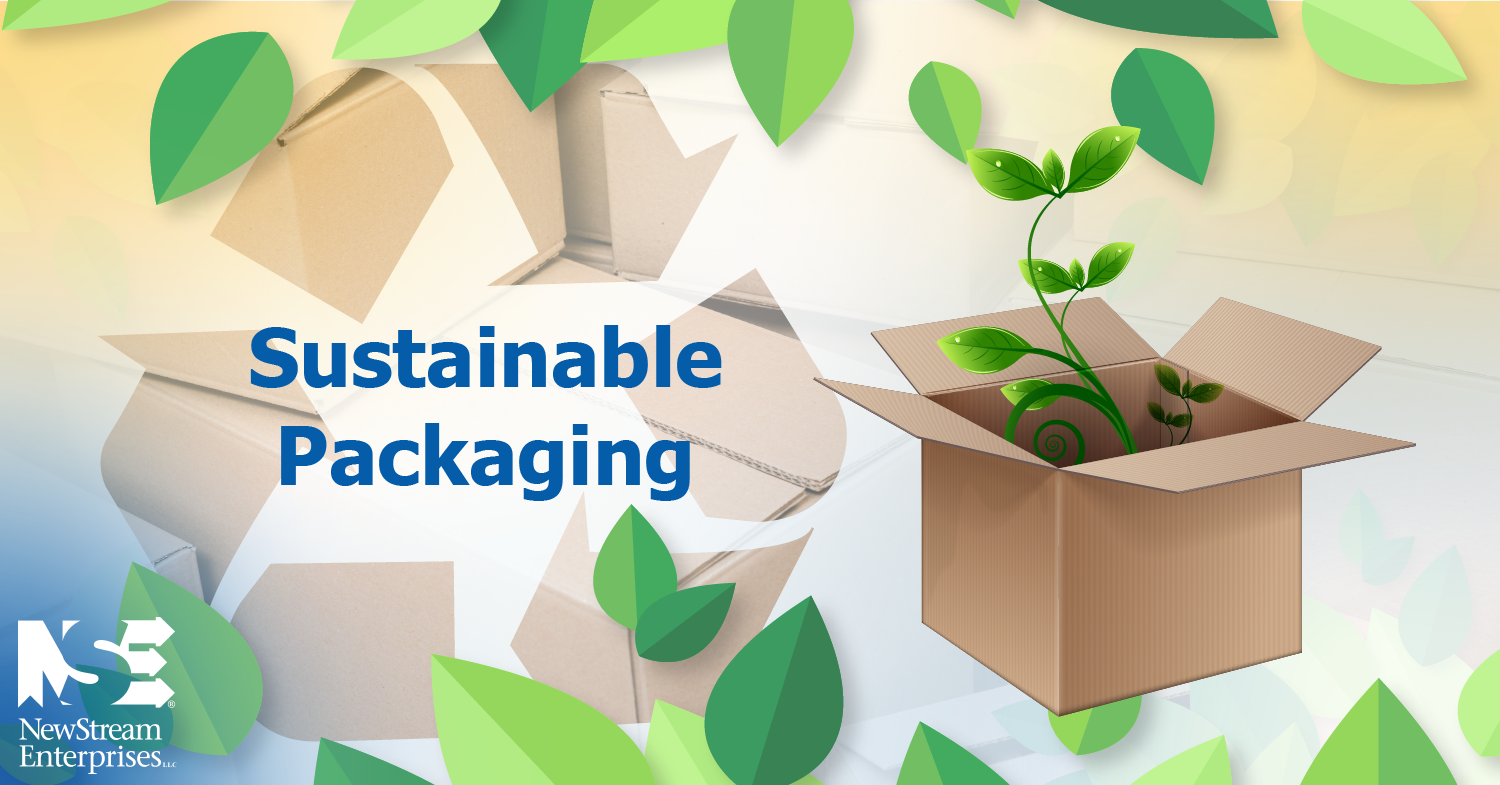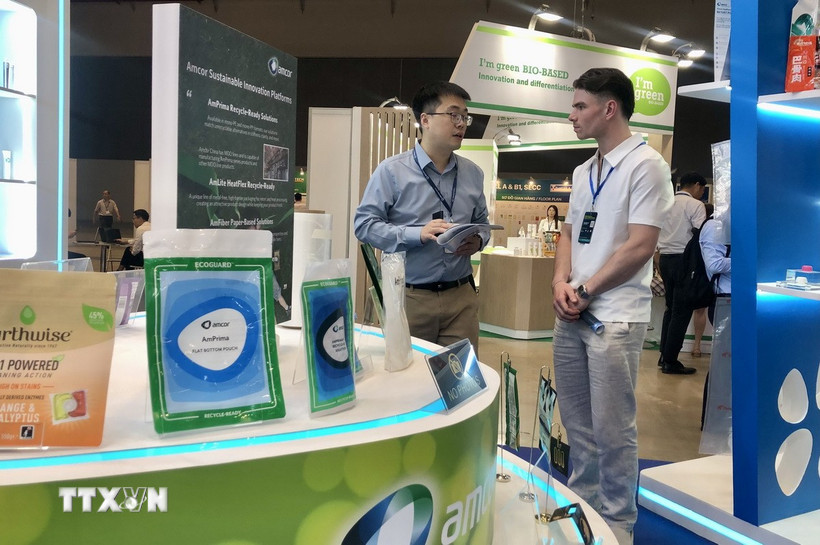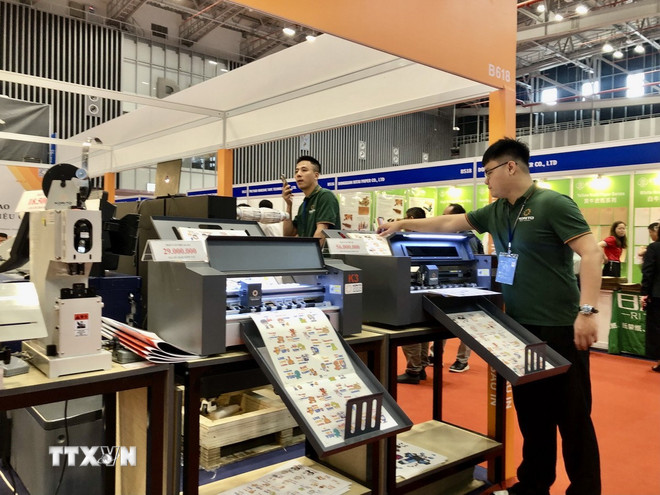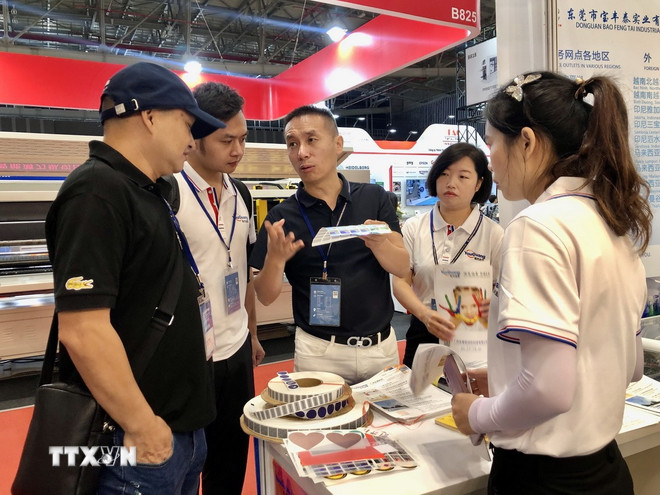
Ho Chi Minh City Promotes Green Packaging Production
Ho Chi Minh City is taking strong steps toward greener packaging production. The spread of eco-friendly technologies and the use of sustainable packaging materials are seen as key opportunities for businesses to transform, enhance their brands, and attract green investment.

Ho Chi Minh City is taking strong steps toward greener packaging production.
1. Packaging Waste: A Growing Challenge
Packaging waste has become one of the biggest environmental challenges for sustainable development in Vietnam. As production, exports, and consumption increase, so does the use—and disposal—of packaging, especially in the food and beverage (F&B) industry.
If businesses continue relying on non-recyclable or hard-to-decompose packaging, the volume of waste could soon exceed control. Experts stress that producers and importers must take greater responsibility for collecting, recycling, or properly handling packaging waste that comes from their products.
2. EPR: Making Producers Responsible
According to Nguyễn Thành Yên, Deputy Head of Legal Policy at the Department of Environment, the Extended Producer Responsibility (EPR) policy—widely adopted in many countries—is being actively implemented in Vietnam. This modern environmental policy requires manufacturers and importers to take responsibility for their products and packaging after use.
From 2025, packaging will need to meet mandatory recycling rates. Companies will be required to report data through the national EPR online system and choose whether to (1) recycle on their own, (2) contribute to the Environmental Protection Fund, or (3) combine both options.
EPR is not just about compliance—it’s a chance for businesses to redesign packaging, rethink waste, and build a more sustainable production ecosystem.

Packaging waste has become one of the biggest environmental challenges for sustainable development in Vietnam.
3. SABECO: Starting Sustainability with Packaging
A strong example comes from SABECO (Saigon Beer-Alcohol-Beverage Corporation), which operates 25 breweries, 11 trading companies, and over 200,000 retail points nationwide.
“Packaging is not only the face of a product—it reflects how we use resources, produce efficiently, and protect the environment,” said Larry Lee, Vice President for Sustainable Development at SABECO.
Today, 100% of SABECO’s primary and secondary packaging can be reused or recycled. The company has reduced the thickness of aluminum can lids from 0.245 mm to 0.240 mm—cutting material use by 15%, lowering transportation energy, and reducing emissions. It also applies closed-loop recycling for glass bottles, aluminum cans, and paper packaging.
“Our goal is that by 2040, all SABECO packaging will be designed for full reuse or recyclability,” Lee added.
4. Expanding the Green Message
Other industries are also joining the green shift. In fashion and footwear, many mid-range brands are launching recyclable and eco-friendly packaging designs, reusing old packaging, and adopting faster-degrading materials.
May 10 Corporation, for example, has replaced traditional PE plastic packaging with paper bags and PET materials that break down much faster.
Biti’s has redesigned its packaging to be minimal and eco-friendly, removing single-use plastics and switching to recycled paper or reusable fabric bags in stores and distribution centers.
5. The Rise of Green Packaging Industry
Green packaging is now a key part of Vietnam’s shift toward sustainable production. In this transition, the printing and packaging industry takes the lead. It drives innovations such as biodegradable bags, recycled plastic boxes, and eco-friendly paper containers.
Moreover, this sector supports many of Vietnam’s major industries—from food and beverages to textiles, footwear, electronics, and e-commerce. As a result, it plays an essential role in both domestic manufacturing and global supply chains.
Currently, Vietnam’s printing and packaging market is valued at over USD 10 billion. It grows about 7% each year, and even reached 10% before COVID-19. In addition, the industry is undergoing a strong digital transformation. At the same time, companies are adopting green production practices—using recycled materials, cutting emissions, and saving energy. These efforts help them meet rising global demands for eco-friendly exports and green consumption.
According to Võ Hồng Sơn, Head of the Ministry of Industry and Trade Office for the Central–Southern Region, this sector not only boosts Vietnam’s competitiveness but also drives long-term sustainable growth.

Green packaging is becoming a crucial part of Vietnam’s broader shift toward sustainable production.
7. Green Technologies on Display
The 23rd Vietnam International Printing and Packaging Industry Exhibition (VietnamPrintPack 2025), held from September 10–13, 2025, in Ho Chi Minh City, brought together 350 enterprises from 15 countries and territories. Throughout the four-day event, exhibitors unveiled the latest innovations in printing, packaging, plastics, and environmentally friendly technologies, underscoring the fast-paced evolution of the industry.
As sustainability becomes a defining trend, Vietnamese enterprises are increasingly promoting green technologies in packaging and advocating sustainable practices across high-consumption sectors such as food and beverage. These proactive efforts not only enhance brand reputation but also help businesses obtain international green certifications and attract investment from environmentally conscious partners.
3. Overcoming the Challenges
Despite progress, the green transition remains difficult. Many companies still face challenges in meeting EPR legal obligations, accessing reliable information, and navigating a fragmented regulatory system.
According to Bùi Lê Thanh Khiết, Head of the Plastic Waste Circular Economy Research Group at the Institute for Circular Economy Development, Vietnam needs stronger coordination among ministries, regions, recyclers, and businesses. He suggests forming EPR councils by industry or region, linking value chains, and supporting innovation in green materials.
He also emphasizes the importance of financial incentives for green initiatives and communication campaigns to raise consumer awareness about sustainable products and packaging.
Operating under the motto of “Pioneering Quality,” Hoang Vuong consistently aims for sustainable and environmentally friendly packaging solutions. We proudly hold the following certifications: FSC Certification, GMI Certification, G7 Certification, ISO 9001:2015
With over 15 years of experience in the paper packaging industry and a solid brand reputation, Hoang Vuong is a leading private paper packaging enterprise in Vietnam, partnering with numerous major brands locally and internationally. We accompany your company on the journey of innovation, seeking differentiation through continuous improvement. Your success is both an achievement and motivation for us to continue innovating and maintaining professionalism.
- Address: 10/6C Street 10, Binh Hung Hoa A Ward, Binh Tan District, Ho Chi Minh City
- Mobile: 0908.863.965 (Mr. Le Hong Son)
- Phone: 028.62696129 – 028.22481926
- FAX: 08.62696032
- E-mail: havupackage@gmail.com
- Website: www.baobigiay.vn – www.hopcungcaocap.vn
- Fanpage: Hoang Vuong Paper Packaging Company Limited.

